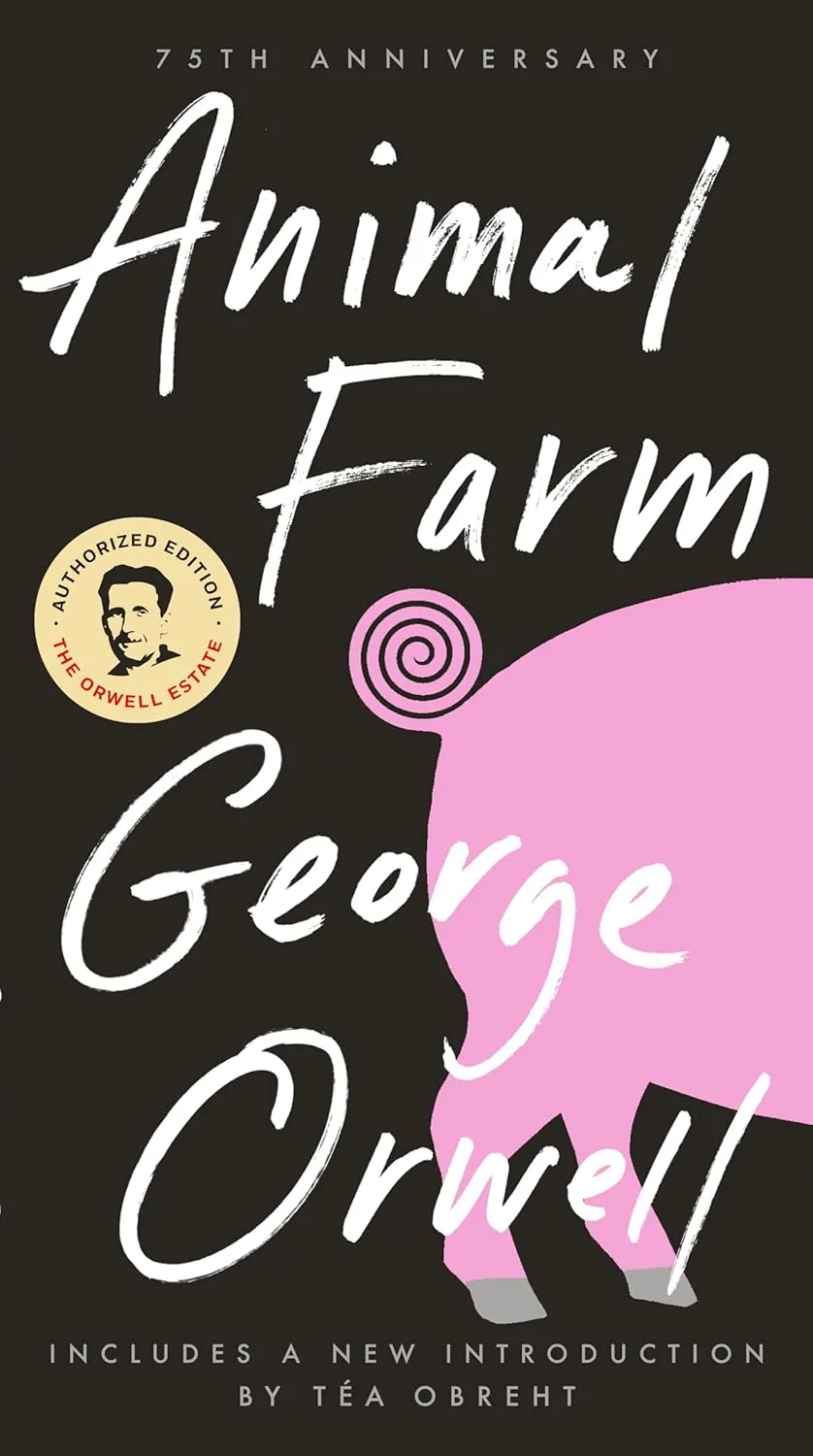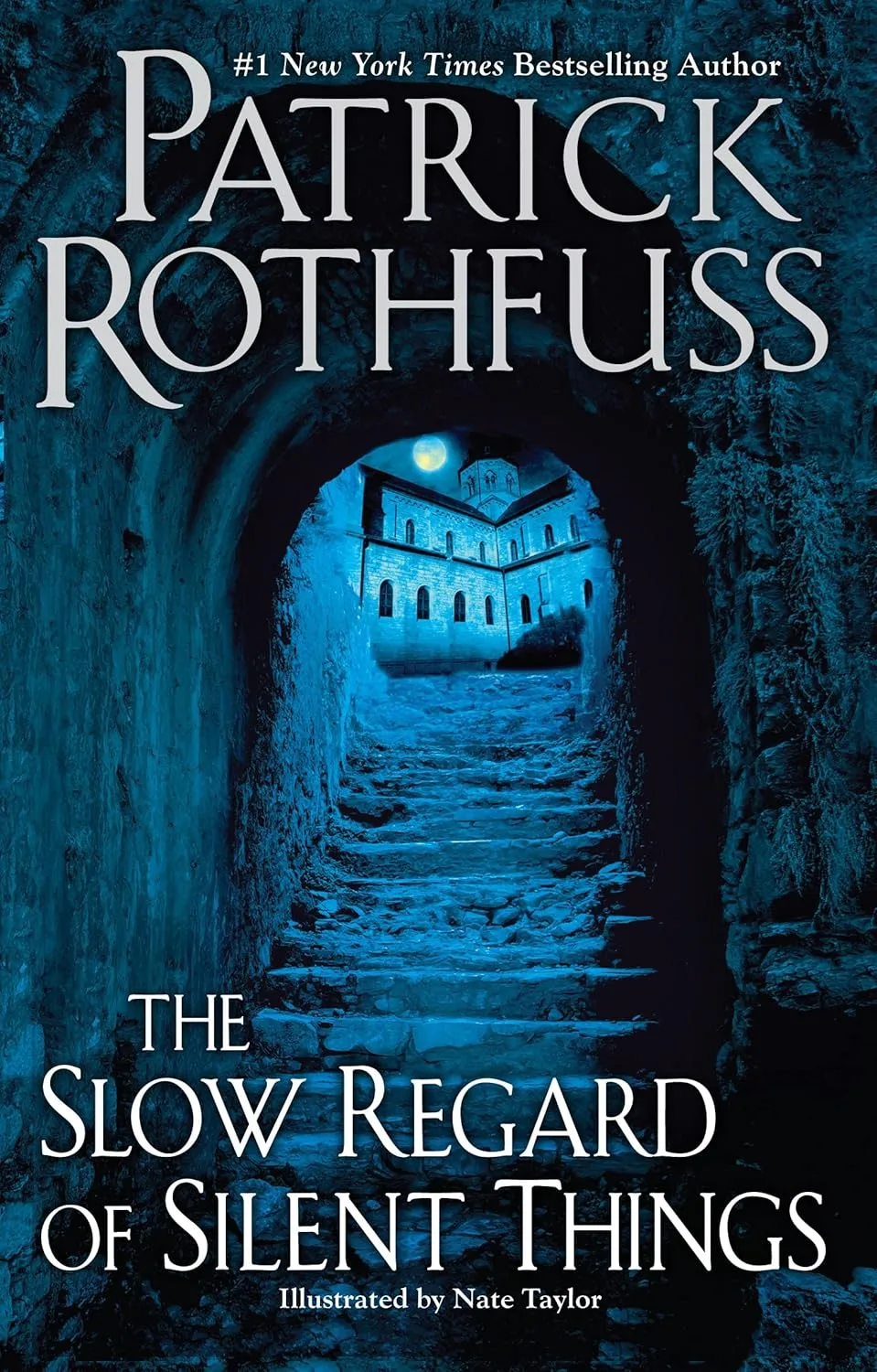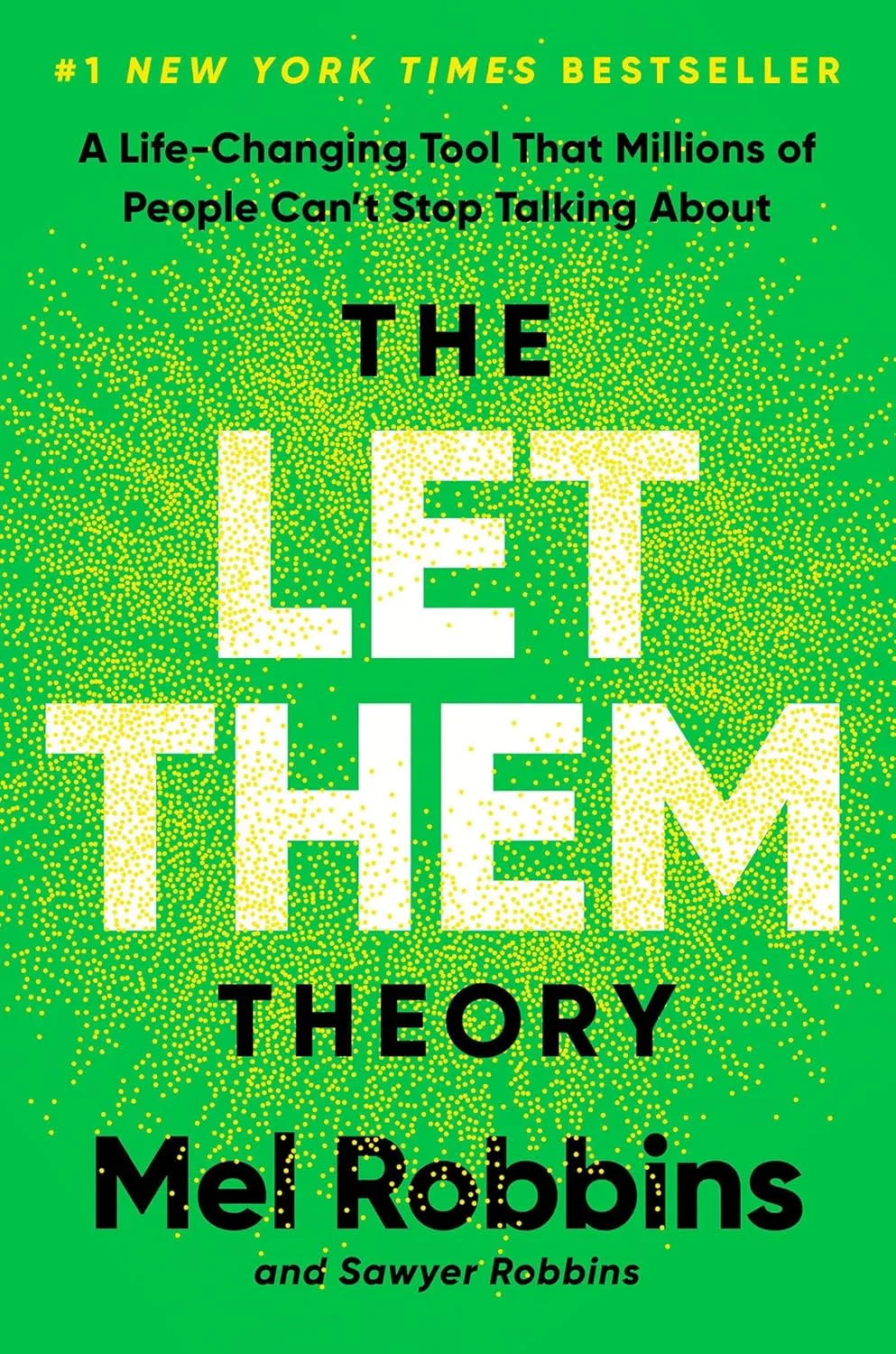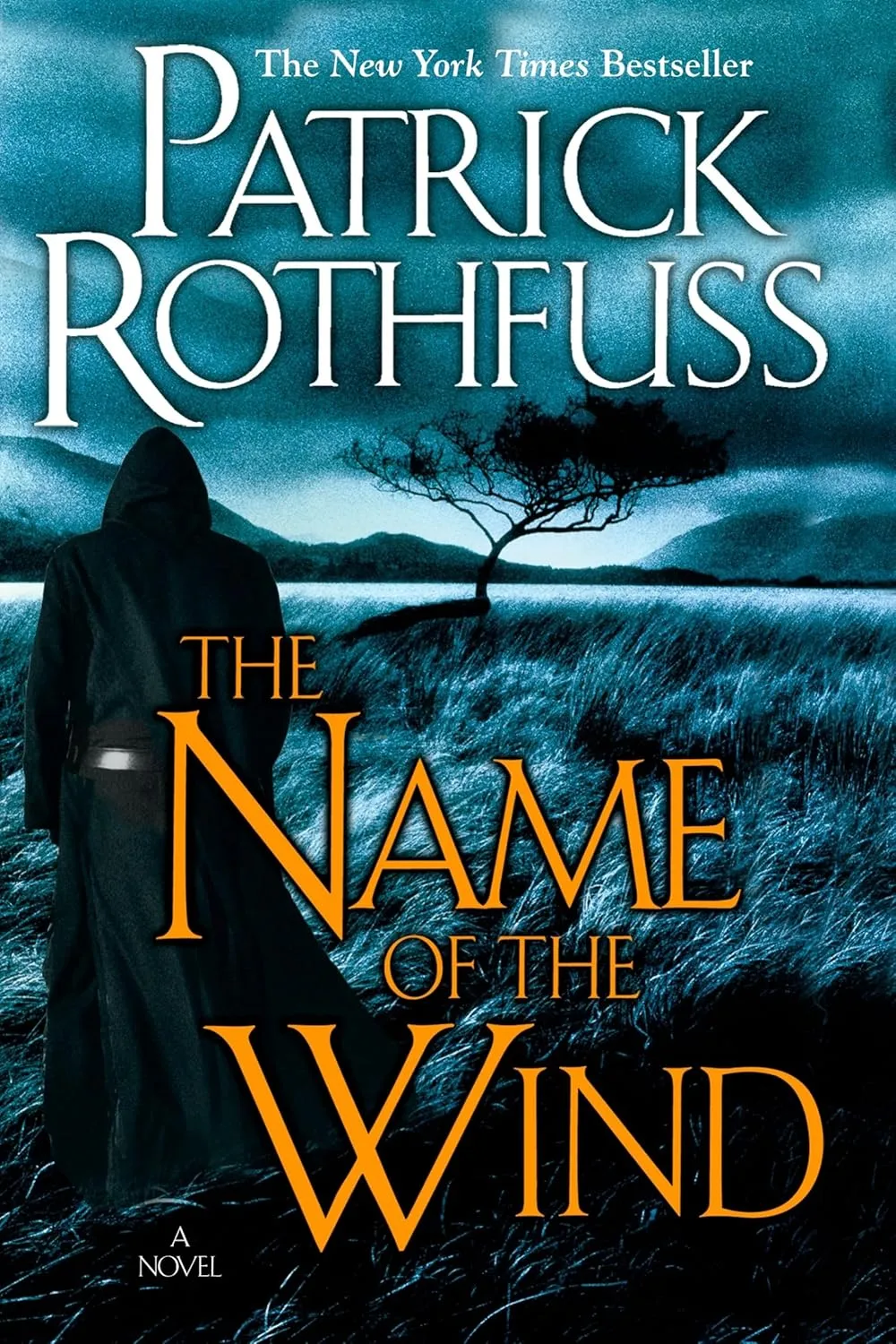Overview
“Animal Farm” is George Orwell’s 1945 allegorical novella that uses a farm rebellion to critique the Russian Revolution and the rise of Stalinism. Through the story of farm animals who overthrow their human owner only to fall under the tyranny of their fellow animals, Orwell creates a powerful satire about power, corruption, and the betrayal of revolutionary ideals.
Key Takeaways
| Theme | Key Insight |
|---|---|
| Power Corrupts | Those who gain power often become what they once opposed |
| Propaganda’s Power | Language can be manipulated to control and deceive populations |
| Revolution’s Betrayal | Revolutionary ideals are often corrupted by those who claim to uphold them |
| Class Struggle | New hierarchies emerge even after overthrowing old ones |
| Historical Repetition | The cycle of oppression continues under different leaders |
Book Structure
The novella follows a chronological narrative structure:
- Setup: Introduction to Manor Farm and the animals’ grievances
- Revolution: The animals’ successful overthrow of Mr. Jones
- Early Utopia: Brief period of equality and shared prosperity
- Rise of the Pigs: Gradual consolidation of power by Napoleon and the pigs
- Corruption: Complete transformation of the revolutionary ideals
- Full Circle: The pigs become indistinguishable from humans
About the Author
George Orwell (Eric Arthur Blair, 1903-1950) was a British author and journalist renowned for his criticism of totalitarianism and support for democratic socialism. His experiences as a colonial policeman in Burma, fighting in the Spanish Civil War, and witnessing the rise of fascism and Stalinism profoundly influenced his writing. “Animal Farm” was written during World War II as a critique of Stalin’s Soviet Union, though its themes extend to any society where power becomes concentrated in the hands of a few.
Why This Book Resonates
“Animal Farm” remains relevant because it captures universal truths about power and human nature. The book resonates because it:
- Demonstrates how noble intentions can be corrupted by power
- Shows the ease with which populations can be manipulated through propaganda
- Illustrates the cyclical nature of oppression throughout history
- Provides accessible allegory for complex political concepts
- Warns against the dangers of political apathy and ignorance
- Reveals how language can be weaponized to serve those in power
Ideal Audience
This book is essential reading for:
- Students studying political science, history, or literature
- Readers interested in political allegory and satire
- Those seeking to understand totalitarian regimes
- Book clubs discussing classic literature
- Anyone interested in the Russian Revolution and its aftermath
- Readers exploring themes of power, corruption, and social justice
- High school and college students (commonly assigned reading)
- Adults seeking accessible introduction to political philosophy
Memorable Quote
“All animals are equal, but some animals are more equal than others.”
Central Themes
| Theme | Description | Literary Significance |
|---|---|---|
| Totalitarianism | The gradual transformation from revolution to dictatorship | Mirrors Stalin’s rise to power in Soviet Union |
| Corruption of Power | How power inevitably corrupts even well-intentioned leaders | Universal warning about unchecked authority |
| Propaganda and Manipulation | Use of language and media to control public opinion | Shows how truth becomes malleable under tyranny |
| Class Warfare | The struggle between different social classes | Reflects Marxist theory and its practical failures |
| Betrayal of Revolutionary Ideals | How original principles get abandoned for personal gain | Critiques the gap between theory and practice |
| Ignorance and Apathy | The role of an uninformed populace in enabling tyranny | Emphasizes importance of education and civic engagement |
| Historical Allegory | Each character and event represents real historical figures/events | Creates accessible way to understand complex history |
Plot Summary
The animals of Manor Farm, inspired by the boar Old Major’s vision of a world without human oppression, rebel against their drunken owner Mr. Jones. Initially, the farm prospers under the principles of “Animalism”—all animals are equal and work for the common good. However, the pigs, led by Napoleon and initially Snowball, gradually assume leadership roles.
After Napoleon expels Snowball and consolidates power, the farm’s original ideals erode. The pigs begin to adopt human behaviors, live in the farmhouse, sleep in beds, and eventually walk on two legs. The famous commandment “All animals are equal” is changed to “All animals are equal, but some animals are more equal than others.” By the story’s end, the pigs have become indistinguishable from the humans they once opposed.
Character Analysis
Napoleon: Represents Stalin—cunning, ruthless, and power-hungry pig who uses fear and propaganda to control the farm.
Snowball: Represents Trotsky—idealistic pig focused on education and improvement, ultimately exiled by Napoleon.
Boxer: Represents the working class—loyal, hardworking horse whose motto “I will work harder” symbolizes exploited laborers.
Squealer: Represents state propaganda—Napoleon’s spokesperson who manipulates language to justify the pigs’ actions.
Old Major: Represents Marx/Lenin—the boar whose vision inspires the revolution but dies before seeing its corruption.
Writing Style
Orwell employs a deceptively simple, accessible prose style that masks sophisticated political commentary. The fable format makes complex political ideas understandable to readers of all ages, while the allegorical structure allows for multiple layers of interpretation.
Historical Context
Written during WWII and published in 1945, “Animal Farm” reflects Orwell’s disillusionment with Stalin’s Soviet Union. Each major character and event corresponds to figures and events from the Russian Revolution and its aftermath, making the novella both a historical commentary and a timeless warning about power’s corrupting influence.
FAQ
Q: Is Animal Farm suitable for children? A: While written in simple language, the book deals with mature political themes. It’s typically assigned to middle and high school students who can grasp its allegorical meaning.
Q: Do I need to know Russian history to understand the book? A: No, the story works as a standalone fable about power and corruption. However, knowledge of the Russian Revolution enhances understanding of Orwell’s specific criticisms.
Q: Is this book anti-communist? A: Orwell was a democratic socialist who criticized Stalin’s authoritarianism, not socialism itself. The book warns against totalitarianism regardless of political ideology.
Q: How long does it take to read? A: As a short novella (about 100 pages), most readers can finish it in 2-3 hours.
Q: Why was the book initially controversial? A: Published during WWII when the Soviet Union was a Western ally, many publishers initially rejected it for its criticism of Stalin’s regime.
Final Thoughts
“Animal Farm” endures as one of literature’s most powerful political allegories because it captures fundamental truths about human nature and power dynamics. Orwell’s genius lies in creating a story that works on multiple levels—as an entertaining animal fable, a historical commentary on the Russian Revolution, and a universal warning about the corruption of power.
The novella’s enduring relevance stems from its insight that revolutionary movements, however well-intentioned, can be corrupted by those who gain power. The transformation of the pigs from liberators to oppressors serves as a cautionary tale for any society that fails to maintain vigilance against the concentration of power.
Literary Impact and Legacy
“Animal Farm” has become essential reading in schools worldwide and continues to be referenced in political discourse. Its phrases have entered common usage, and its themes resonate in contemporary discussions about authoritarianism, media manipulation, and political corruption.
The book’s accessibility makes complex political theory understandable to general audiences, while its allegorical structure allows it to transcend its specific historical context and speak to universal human experiences with power and oppression.
Modern Relevance
In an era of increasing concern about authoritarian tendencies, “Animal Farm” provides valuable insights into:
- How democratic institutions can be undermined from within
- The role of propaganda and “alternative facts” in political control
- The importance of an educated, engaged citizenry
- The dangers of political apathy and blind loyalty
- The way language can be manipulated to serve power







